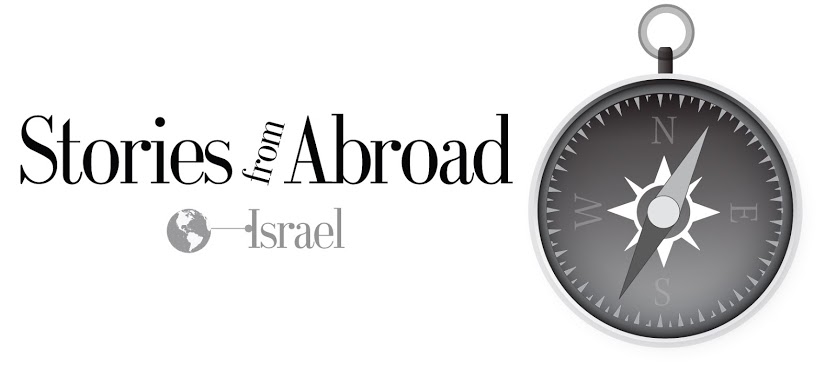I went to Israel to meet my grandfather’s sisters, my only other family members that survived the Holocaust. I wanted to ask them to share their experiences, but deep down, I knew that I couldn’t ask them outright. It had taken years for my grandfather to open up to me. Why would people I’d just met?
When I found out that neither one spoke English, even the slightest hopes of an interview went down the drain.
Then I met them, and something incredible happened: We didn’t need to say a word.
I met Rachel first. Within minutes of entering her tiny apartment, she offered me a homemade pastry, which I happily accepted.
“She makes the best pastries,” said my grandfather, and I remembered him saying that their mother had been the best cook in the world. Rachel tried to imitate her, but no matter what, she felt that she never quite got it right.
After we ate, Rachel got out old photo albums, a few of which contained photographs from as early as the 1930s. I flipped through them with my grandfather.
“That’s my brother.” He pointed to a photograph of a young man with big ears and a grin that lit up the page. Usher Farkas had been sent to a labor camp before my grandfather was deported. My grandfather never saw him again, but his memories of him remain vivid. When the anti-Semitism became unbearable in his hometown, he went to live with Usher near Budapest. Though they missed the rest of their family, they were happy in the city a world apart from their tiny village. My grandfather recalls spending a lot of time at a Jewish club, where they played ping-pong, sang songs, and played cards until late into the evening.
The album also contained a photograph of three sisters taken before the war. They’re bundled up against the bitter cold of a Czechoslovakian winter. Their arms are around each other; their heads are thrown back in laughter.
Then there’s a gap in the album. Years pass: 1942 … 1943 … 1944 … 1945. The pictures that follow are different. The majority depict Palestine; Rachel had been heavily involved in the Zionist movement, even before the war.
Rachel couldn’t say a word to me, but sometimes pictures are worth more.
The same might be said of Bracha, my grandfather’s other sister. Her English was slightly better than Rachel’s, but barely so. Everything I said, my grandfather had to translate to Yiddish.
The strange thing was that I felt an immediate connection to Bracha. Like Rachel, she sat me down with a bunch of photographs, although hers were much messier. As she dumped them in a haphazard pile on my lap, mixed with weathered postcards and faded pamphlets, I realized we were very much the same person, 73 years apart.
Unlike Rachel’s, Bracha’s photographs contained few memories of life before the Holocaust, nor did they depict much about the struggle for a Jewish state. Instead, they portrayed snippets of Bracha’s long and fulfilling life. There were photographs of her riding speedboats, dancing her heart out, smiling in front of every major monument in Europe.
I had come to learn about the Holocaust; Bracha showed me the buoyancy of the human spirit. Despite unimaginable tragedies, her life has been filled with happiness. When doing this kind of research, that’s incredibly important to remember. It’s the reason my grandfather and his sisters fought so hard. Why they lied. Hid. Ran. Risked their lives with daring escapes from the barracks. Faced prison on Cyprus. Traveled to unfamiliar countries to start life anew.
Such is their story, which I finally got to learn, but I also realized that I shouldn’t ignore the epilogue. Every moment with these people is special, and while I’m glad to know their history, the present — the time I share with them — is much more important.

